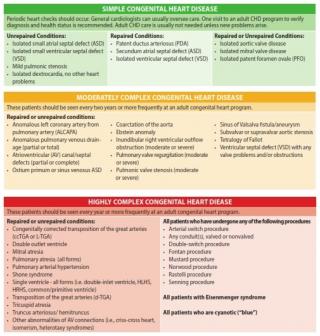Facts and issues
You are here
CHD Facts and Issues
- Congenital heart disease (CHD) is the world’s leading birth defect. About 1 in 80-100 Canadian children are born with CHD.1 Sixty years ago only about 20% of children survived to adulthood; that number has since increased to about 90% – resulting in a growing population of young adults who require life-long cardiac care.2
- There are an estimated 257,000 Canadians with Congenital Heart Disease.3
- Of the 257,000 Canadians with CHD, two-thirds are adults. At least half face the prospect of complications, multiple surgeries, and/or premature/sudden death.3
- There are far fewer resources allocated for the care of adult CHD patients than other cardiac patients. As a result, wait times for clinical visits and surgical intervention are much longer than for other cardiac patients – leading to increased anxiety, added risk and even death.
- There are over 40 types of congenital heart defects
Here are some specific Canadian statistics regarding services for adults with CHD:
- There are 15 dedicated centres across Canada to treat adults with CHD (Click HERE to find a centre).
- In 2012 of approximately 96,000 adult CHD patients in Canada, only 21,879 (23%) are being followed in one of the 15 centres. The other 77% are considered "lost to follow-up".4 Recent studies and improvements to Transition programs across Canada indicate this number is now averaging about 50% successful transition.5
- There are approximately 20 CHD surgeons who operate on CHD adults, and of these 12 are pediatric cardiac surgeons.4
- Of the 80 adult and pediatric cardiologists affiliated to an adult clinic, only 27% had received formal training in adult CHD.4
- 3.6% of all Canadian adult cardiologists, 36% of all Canadian pediatric cardiologists, and 11% of all Canadian cardiac surgeons were affiliated with an adult CHD centre.4
- 1.8% of all Canadian adult cardiologists had formal adult CHD training.4
- Four of the 15 centres had no dedicated nursing time. Two centres had full-time equivalents, and 9 centres had no institutional clerical support.4
- There is currently no coordinated plan to transfer the medical records of CHD patients transitioning from pediatric to specialized adult care. Less than half of patients with complex congenital heart defects transition successfully; as a result, many do not receive the care they need.
- Research in the area of adult CHD has not reached the level of sophistication observed in other areas of heart disease research – even though CHD-related research has the potential for greater impact. At the same time, peer review committees for research funds rarely include adult CHD specialists and frequently mistake the lack of research sophistication for a lack of quality or relevance.
1. Health Canada Report 2002 – Congenital Anomalies in Canada.
2. Moons P, et al. Temporal Trends in Survival to Adulthood Among Patients Born With Congenital Heart Disease From 1970 to 1992 in Belgium. Circulation 2010;122:2264-2272.
3. Marelli AJ, et al. Lifetime prevalence of congenital heart disease in the general population from 2000 to 2010. Circulation 2014 doi: 10.1161.
4. Beauchesne LM. Structure and process measures of quality of care in adult congenital heart disease patients: A pan-Canadian study. Int J Cardiol 2012;157:70-74.
5. Suliman A, et al. The Critical Transfer from Paediatrics to Adult Care in Patients with Congenital Heart Disease: Predictors of Transfer and Retention of Care. CJC Pediatric and Congenital Heart Disease 2022;129-135.
Upcoming
Sorry, there are no posts at this time.




